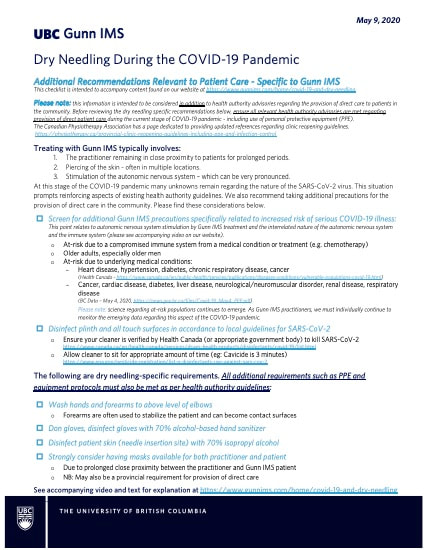Beyond Trigger Point Dry Needling
Setting the Standard in Safety and Effectiveness Since 1994
|
Gunn IMS is a total whole body system for the diagnosis and treatment of persistent myofascial pain syndromes including muscle, joint, tendon, bursal, fascial, neural and biomechanical problems. The approach, using intramuscular dry needling, is based on the neuropathic dysfunction model developed by Dr C. Chan Gunn. This model looks at the whole body, not just isolated areas of pain, and considers dysfunction in the nervous system as the cause of persistent myofascial dysfunction and pain.
|
The Gunn IMS teaching program has run continuously since 1994. Since 2011, the program has been part of the University of British Columbia (UBC) Faculty of Medicine and is now located in the Chan Gunn Pavilion on the UBC Vancouver campus. Our world class instructors train only highly experienced physiotherapists and medical doctors. The course is coordinated by UBC Faculty of Medicine's Continuing Professional Development Division.
|




 RSS Feed
RSS Feed
